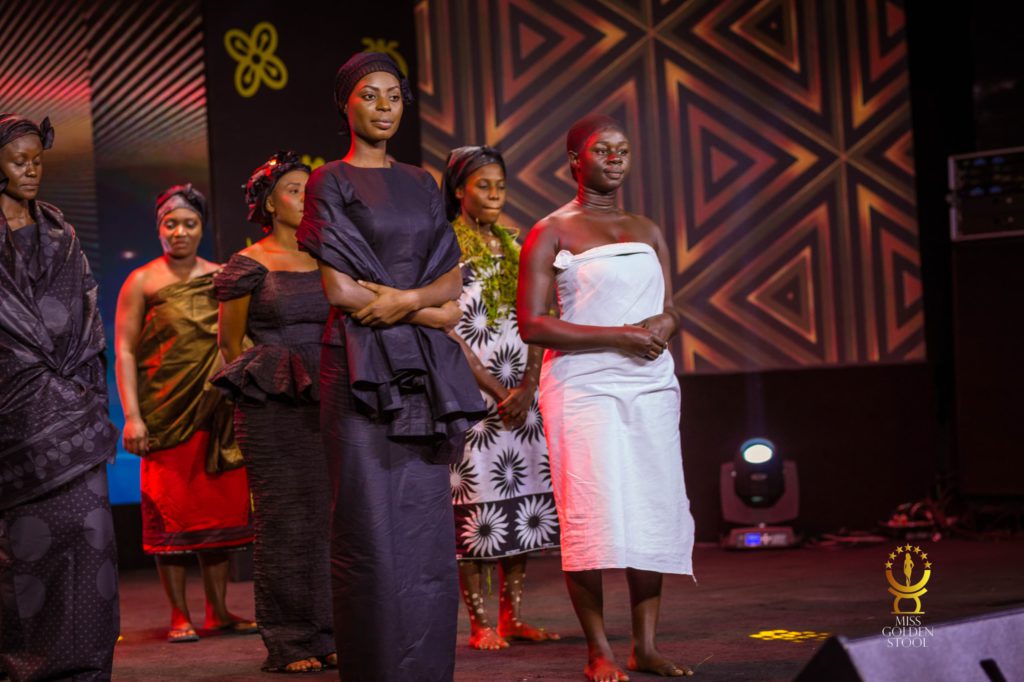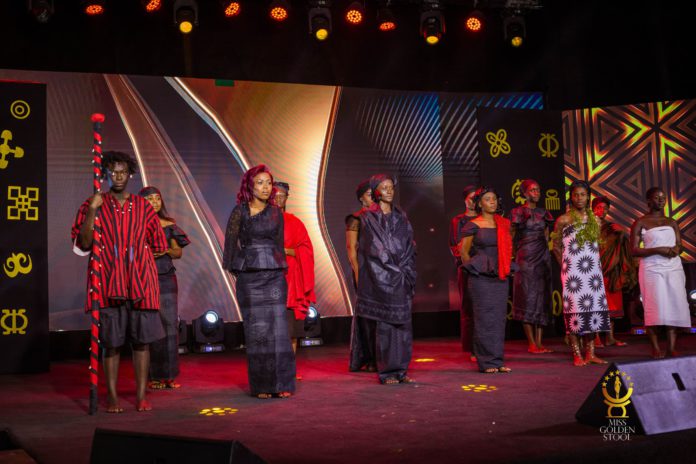In an enlightening and cultural showcase during the fifth week of Miss Golden Stool competition, contestants provided vivid insights into the diverse funeral rites and traditions in Ghana.
Each contestant articulated unique funeral rituals deeply rooted in their cultural heritage.
The presentations covered a broad spectrum of practices, encompassing widowhood rites, ceremonial mourning, and burial customs that underscored the rich Ghanaian traditions.
Contestant Akua, from Kwahu Nkwatia in the Eastern Region, narrated the ceremonial significance of a three-gun salute in announcing the passing of a Bono chief. Also, she educated how the linguists take charge of pouring libation and seeking guidance and protection for the subjects. Other chiefs are invited to participate in the burial ceremony.
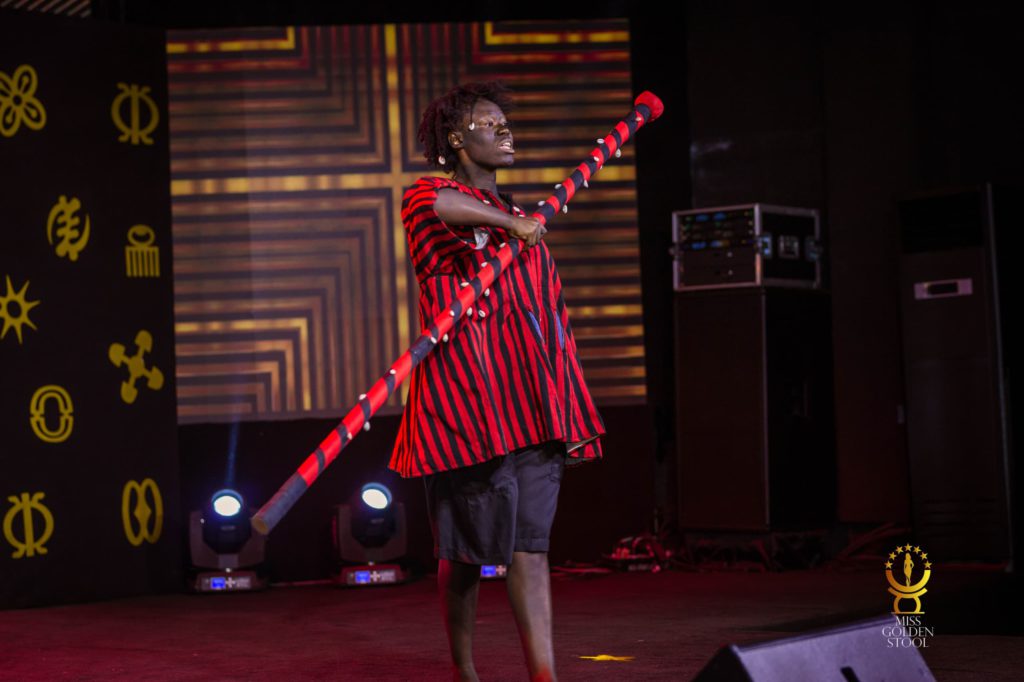
Nana, representing Duayaw Nkwanta in the Ahafo Region, highlighted the role of a daughter-in-law during the funeral of her husband’s parent. She educated on the items essential for the in-law to present including 2 funeral fabrics of different colors, toiletries for corpse bathing and cash support.

Appiawaa from Abura Batanyaa in the Central Region, elaborated on widowhood rites, particularly the ceremonial shaving of a wife’s hair after her husband’s passing, the obligation to wear black attire for a year, and the symbolic act of tearing beads to signify the end of the marriage. She also spoke on banning widows from working until six months after the burial.
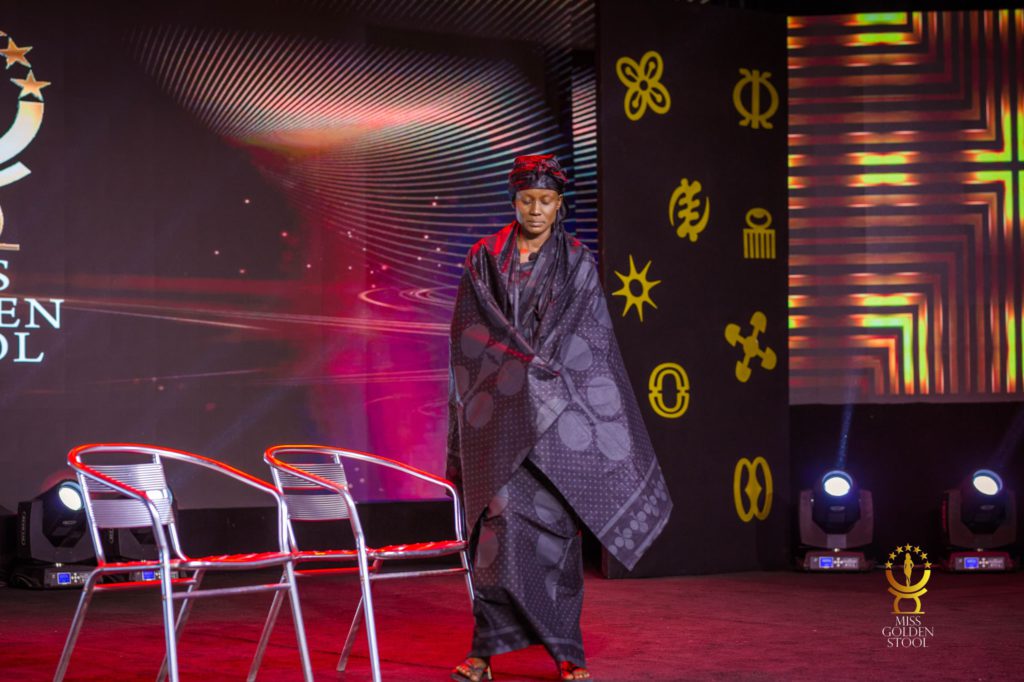
Animuonyam from Kumawu, Ashanti Region, explained the unique traditions surrounding the burial of twins, including pre-funeral rituals such as the surviving twin sleeping with the symbolic ‘Nyanya’ leaves to signify parting from the dead sibling’s spirit, and wearing white attire.
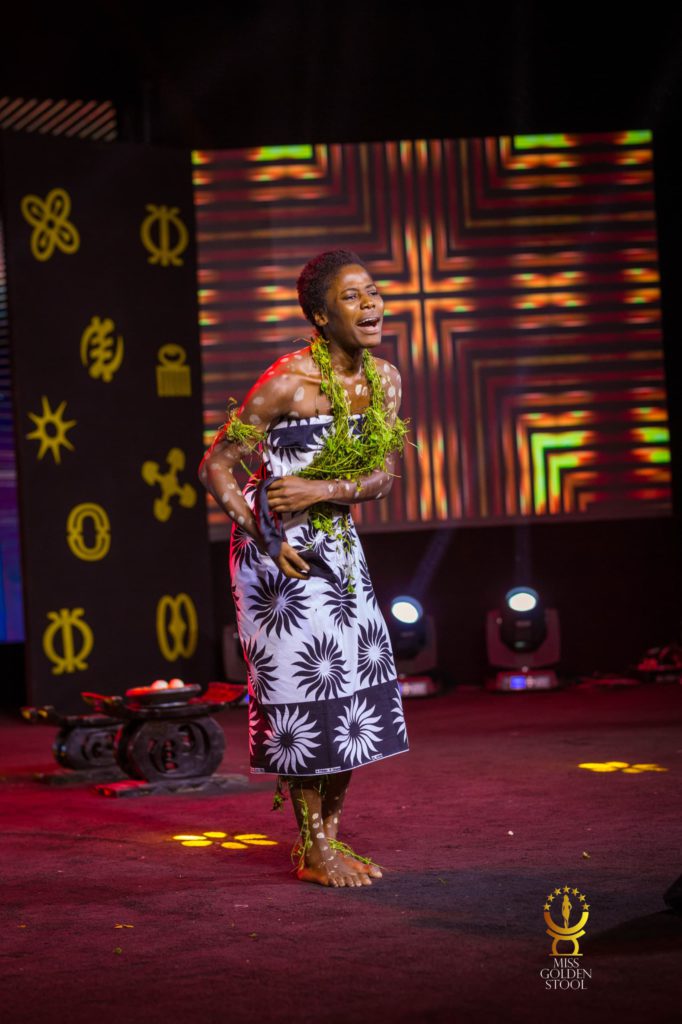
Osika from Asanso Kyekyewere, Ashanti Region, shared insights into the practices associated with being a sympathizer or friend, detailing contributions for funerals and specific rituals related to natural deaths.
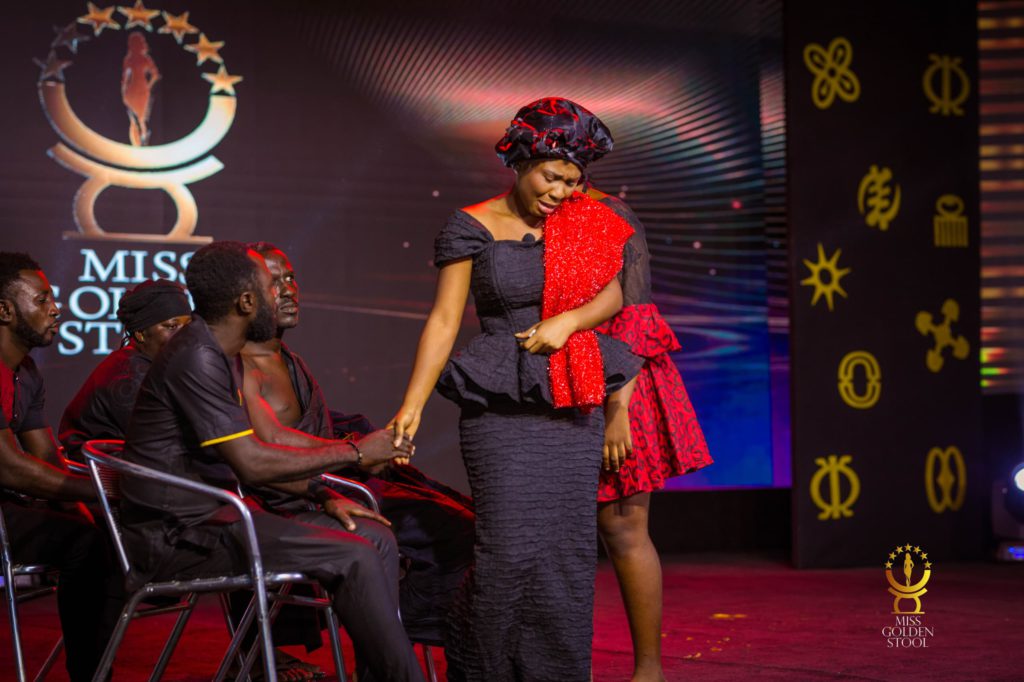
Afia from Asante Mampong, Ashanti Region, described Dagomba customs wherein wives are not allowed to see their husbands’ burial but undergo traditional bathing, followed by a specific timeline for further rituals and inheritance sharing.
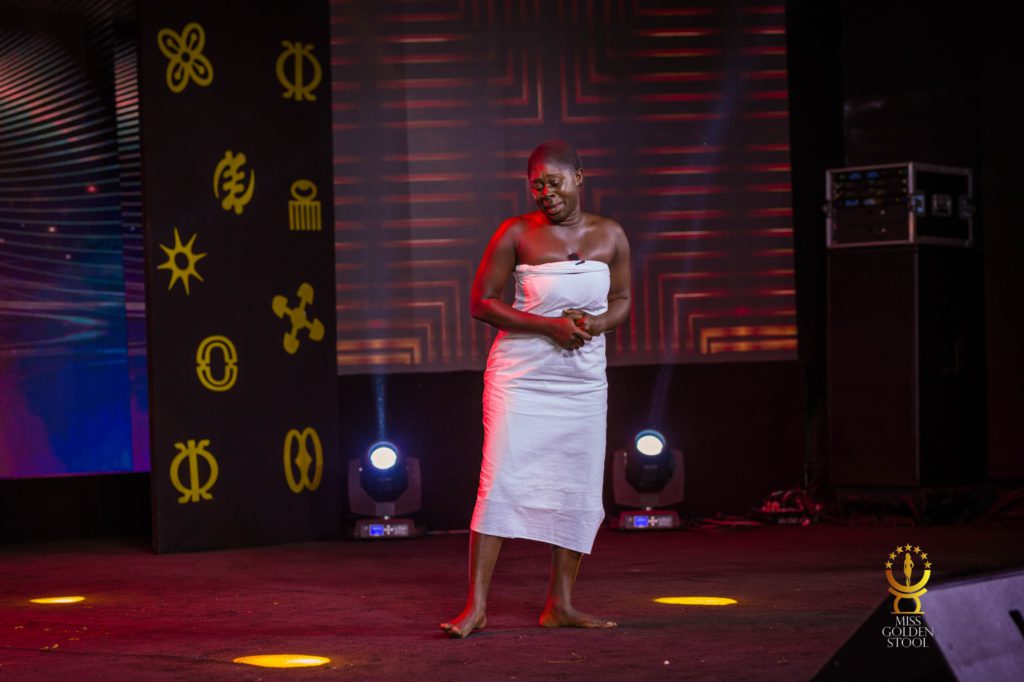
Ababio from Asante Bekwai, Ashanti Region, narrated widowhood rites specific to the Volta Region. She shared how widows cannot go attend the burial alone, but be accompanied by fellow widows. She also spoke on widows being restrictions on viewing the deceased, and symbolic acts like using a favorite bowl and cooking the late husband’s favorite food.
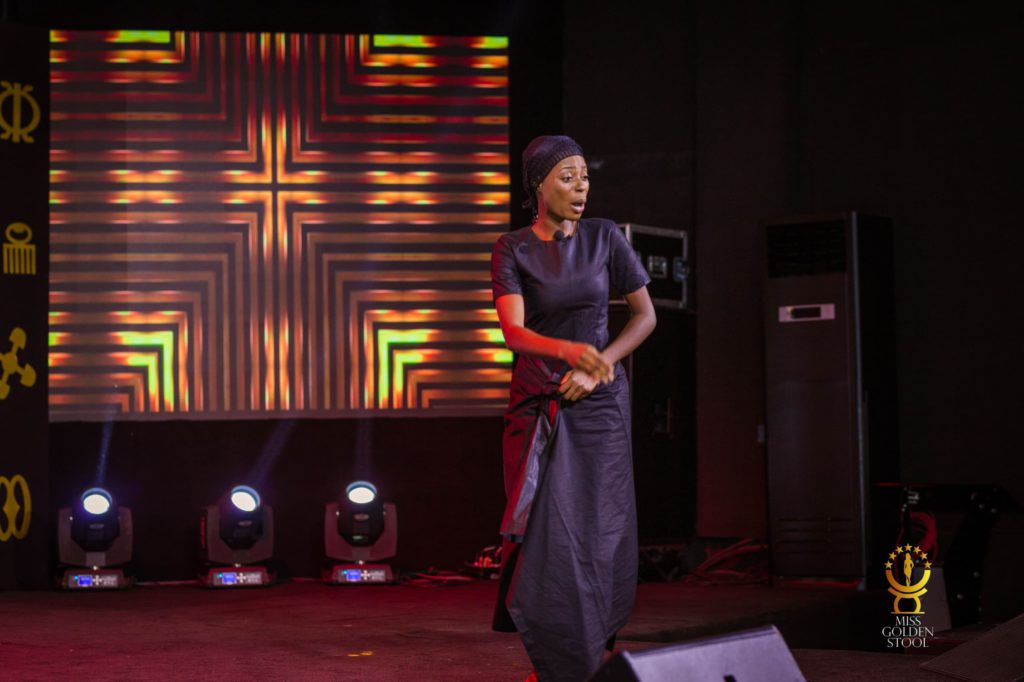
Amoakoaa from Twifo Atti Morkwa, Central Region, shared details on traditional embalming practices using rock salt and how bodies are turned upside down to get out the fluids in the body. She also mentioned personal items of the deceased are used in burial. Corpse is adorned with symbolic items like roasted corn to signify to family to always feed surviving relatives.
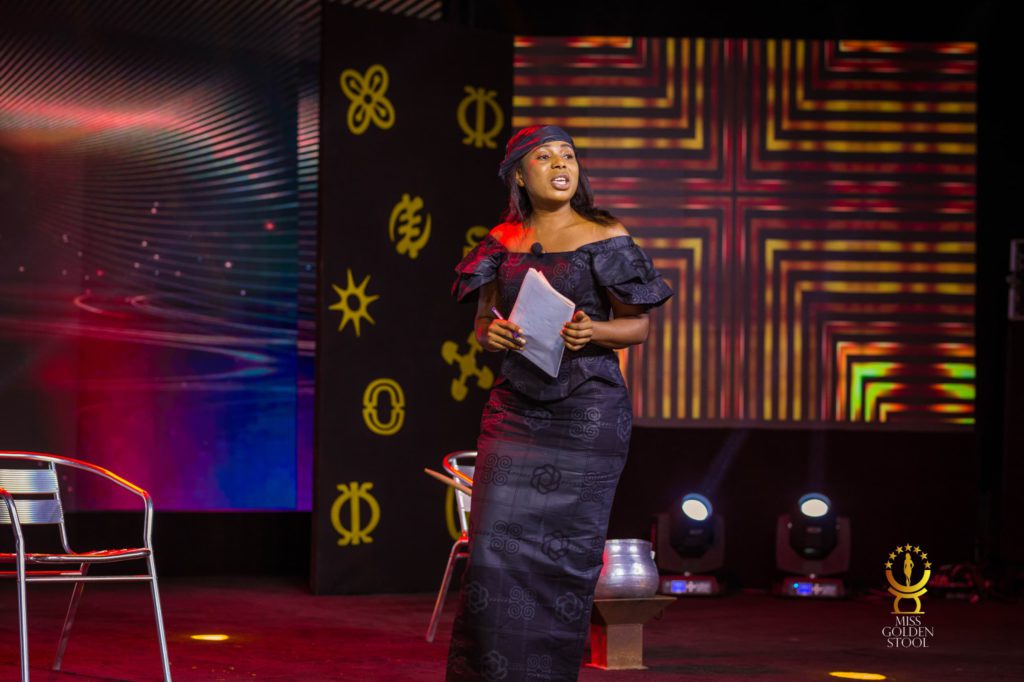
Darkowaa from Amakye Bare, Ashanti Region, highlighted ancient customs where chiefs are informed of the death before public announcement. Corpses are bathed and dress in their favorite dress and adorned with ornaments. Elders dump into the coffin favorite items of deceased and some money for his journey into the land of the dead. Thanksgiving and account follows after which a next-of-kin is elected to inherits him.
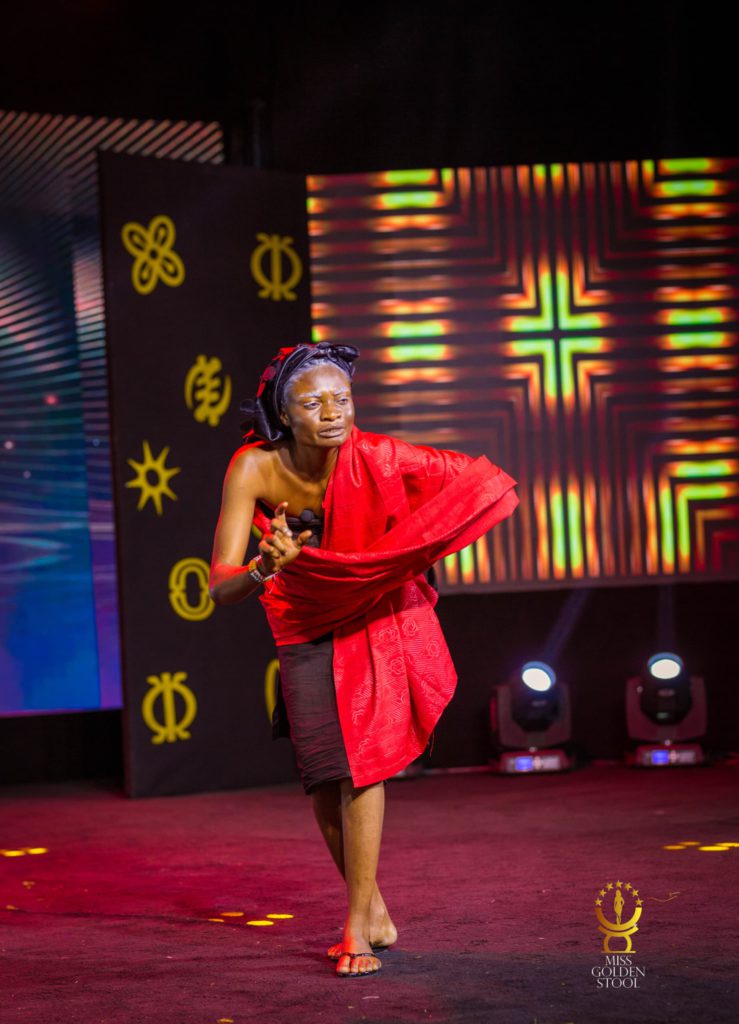
Osaah from Dunkwa-On-Offin, Central Region, described practices wherein elderly women bathe the deceased with toiletries presented solely by the children. Significantly, there should be no crying after interment. She also spoke on the importance of compulsory handwashing before entering the house after burial.
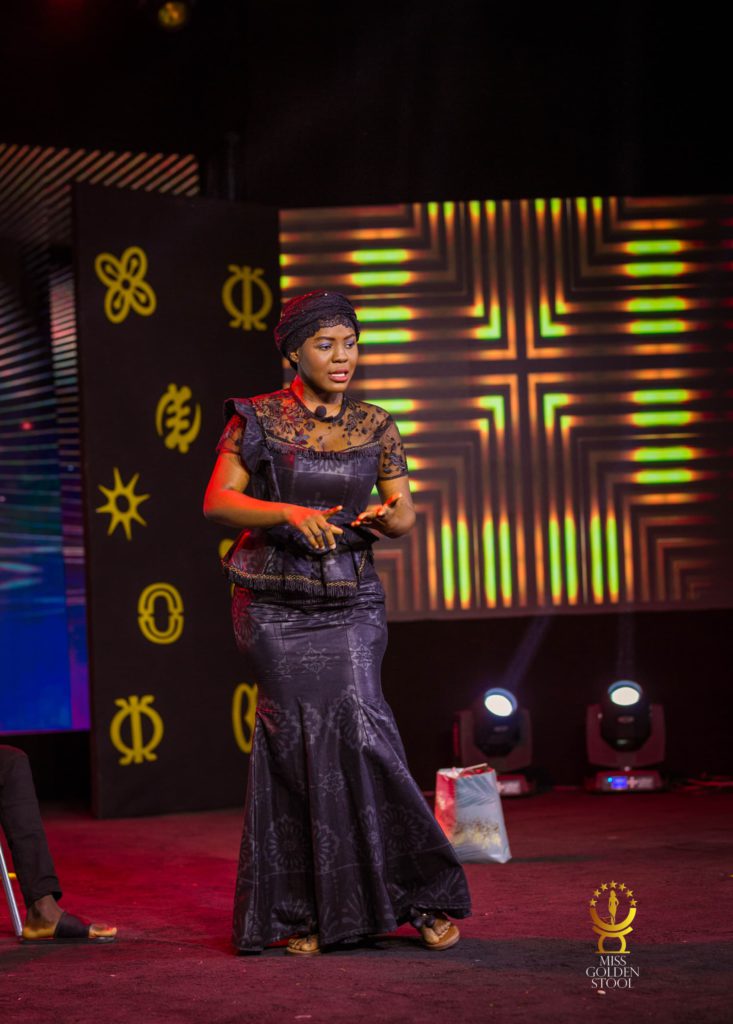
Awura from Asante Mampong Daaho, Ashanti Region, shed light on the mistreatment of widows after funeral rites, particularly the symbolic use of a key laced with a chain to prevent remarriage for a year.
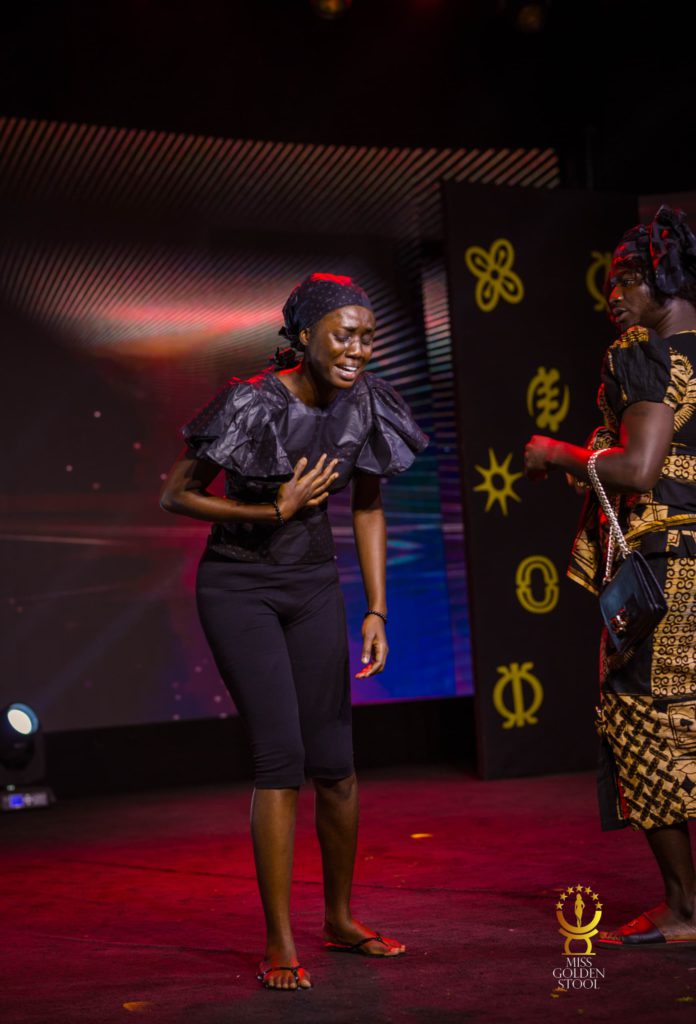
Agyakowaa from Asante Bekwai, Ashanti Region explored widowerhood rites involving symbolic offerings like pillows, beds, and clothes to signify unity in the afterlife.
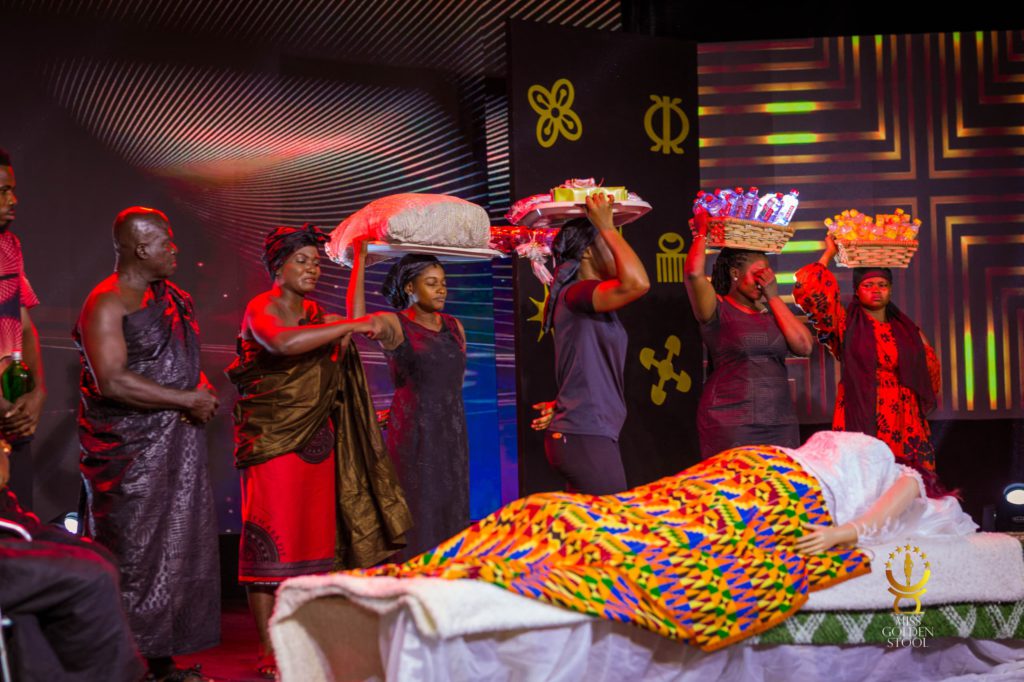
After the intense showcase, Darkowaa from Amakye Bare in the Ashanti Region stood out as the best performer of the night. Her compelling portrayal of traditional corpse-taking rituals and earned her accolades from the judges.
However, the episode witnessed the unfortunate elimination of Ababio from Asante Bekwai and Afia from Asante Mampong
